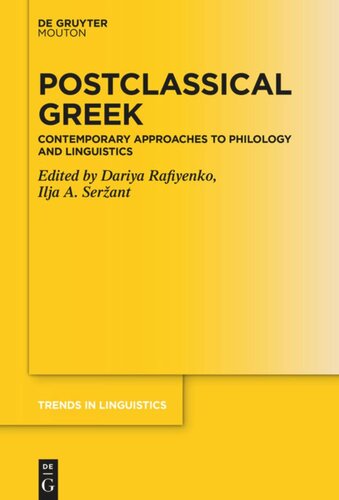

Most ebook files are in PDF format, so you can easily read them using various software such as Foxit Reader or directly on the Google Chrome browser.
Some ebook files are released by publishers in other formats such as .awz, .mobi, .epub, .fb2, etc. You may need to install specific software to read these formats on mobile/PC, such as Calibre.
Please read the tutorial at this link: https://ebookbell.com/faq
We offer FREE conversion to the popular formats you request; however, this may take some time. Therefore, right after payment, please email us, and we will try to provide the service as quickly as possible.
For some exceptional file formats or broken links (if any), please refrain from opening any disputes. Instead, email us first, and we will try to assist within a maximum of 6 hours.
EbookBell Team

5.0
108 reviewsThe language of Postclassical Greek is a somewhat neglected area of research despite the language of this period being well attested with a large number of different sorts of texts ranging from papyri and dialect inscriptions to literary texts by Hellenistic, Roman and Byzantine writers. These texts offer an extensive amount of data and are rather understudied in comparison with texts of the Classical period. This volume aims to fill some of this void by offering an interdisciplinary approach to the language of the period. As such, it brings together contributions from disciplines including usage-based linguistics, theoretical syntax, historical linguistics, papyrology
and palaeography, sociolinguistics and research on multilingualism. It is hoped, therefore, that the volume will appeal to a wide audience interested in exploring language development from several perspectives.